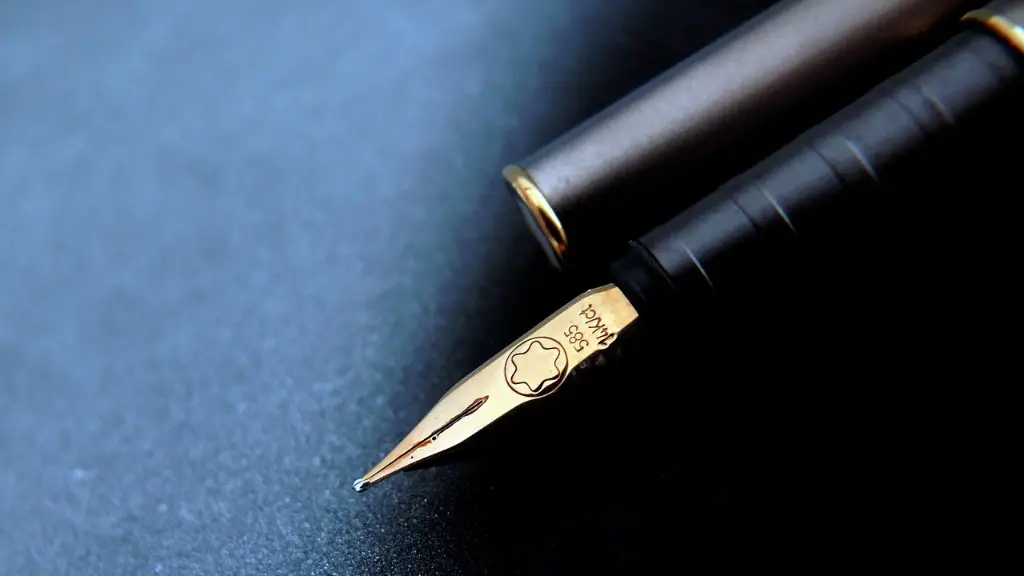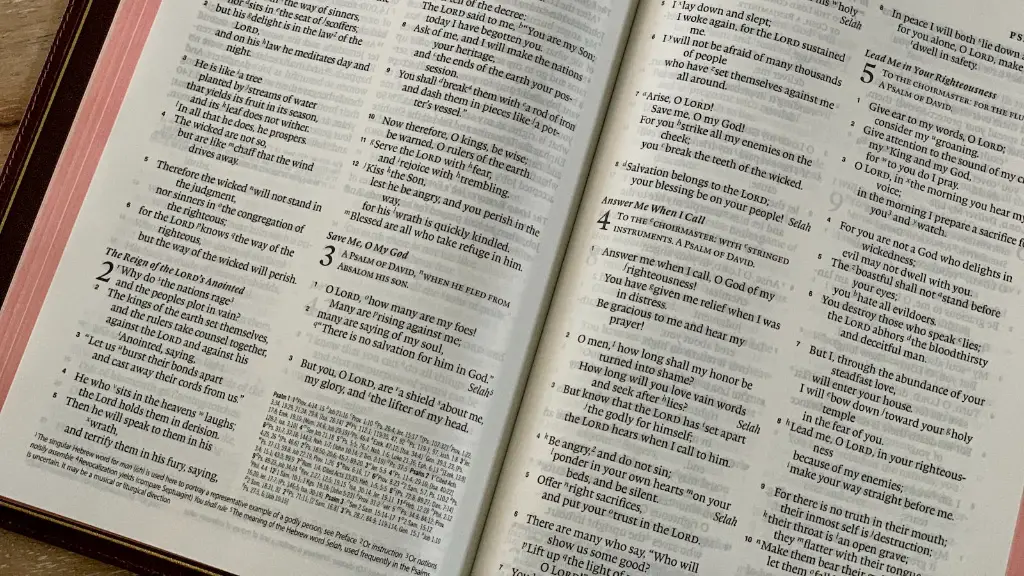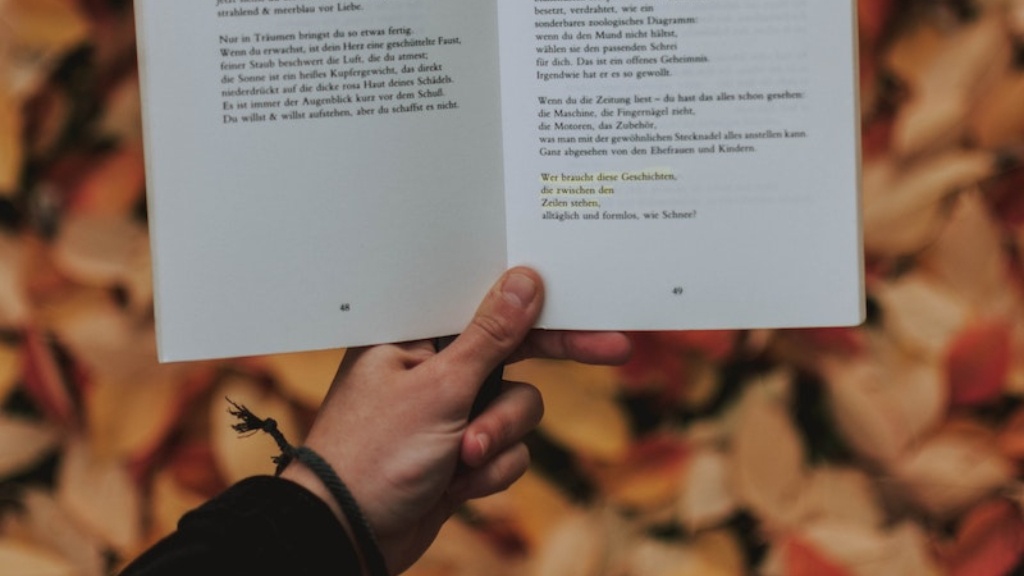How to Write a Cover Letter for Poetry Submission
Writing a successful poetry submission requires a lot of preparation and thought. A poet must take the time to write a compelling cover letter in order to stand out among the competition. A cover letter is an important part of the poetry submission process, as it serves as the first impression of the poet and the poem. It should succinctly state the poet’s qualifications and the merits of their poem.
When writing a cover letter, the most important thing to keep in mind is that it should be professional. It should be written with a purpose and have a clear objective. It should be persuasive, but not too long. A poet should always make sure their contact information is included in the cover letter, as well as any questions or requests for feedback.
When writing a cover letter for a poetry submission, it is important to provide background information about the poem, such as when and where it was written and what inspired it. This will help provide an understanding of the poem’s context and give the reader an insight into the poet’s creative process.
In addition to providing background information, a cover letter should include a brief synopsis of the poem, including a brief description of the poem’s subject matter, tone, and structure. It should also include a description of the poet’s personal experience with the poem, as well as why they believe it should be published.
It is also important to provide data that supports the merit of the poem. This can include competition wins, awards, scholarship recognitions, or any other proof that the poem is of a high quality. This data should always be included with a cover letter and any other materials that come along with the submission.
Writing a cover letter for a poetry submission can be a daunting task, but it is an essential part of the process. By following the tips mentioned, poets can ensure that their poems have the best chance of getting accepted.
Research
In order to make sure the best submission possible is made, poets should research the journal they are submitting to. It is important to know what the journal looks for in a poem and the kind of style they prefer. By researching, poets will have a better understanding of what the journal wants and can tailor their cover letter to fit.
Additionally, poets should keep in mind that editors may have different opinions and preferences. This is why researching and getting a better understanding of the journal is so important. Doing so will allow the poet to better tailor their cover letter to the specific journal and increase their chances of success.
Poets should also keep in mind that their cover letter should be concise and to the point. It should only include the essential information and leave out any irrelevant information such as biographical information or personal anecdotes. It should be informative and persuasive, but not too long.
Finally, it is important to remember that editors often receive hundreds of submissions, so a cover letter should be presented in a professional and confident manner. A poorly written or inconsistent cover letter is likely to be rejected, so poets should ensure they take the time to craft a compelling and persuasive letter.
Expert Advice
Experts in the field of publishing often provide valuable insights and advice that can help a poet in their efforts to have their work accepted. One such expert is author and publisher Mary Kuebler, who advises poets to write a brief letter that serves as a “calling card” when submitting poetry. She states that a successful cover letter should “state the nature of the work (poem), its genre, length, and a brief overview of its contents.” She suggests including a short author biography, why the poem fits within the market and any recognition or awards the poet may have received.
In the cover letter, Kuebler encourages poets to describe why they write and their writing principles. She also suggests mentioning any teaching and publishing experience they may have. By doing this, they may be taken more seriously by the potential editor and be able to better persuade them to accept their work.
Kuebler also recommends being humble but confident when writing a cover letter. Poets should remember that a cover letter is not a chance to brag about their work or to say how great they are. Rather, it should highlight the quality and merit of the poem and let the editor decide if it is suitable for the journal or publication.
Reading the Guidelines
Poets should always read and follow the submission guidelines carefully. Every journal and publication has its own set of guidelines and a poet should make sure that the cover letter meets all the criteria. If specific formatting or other requirements aren’t met, the poem may be rejected outright.
Additionally, some journals may offer feedback and critiques. Poets should always take advantage of these opportunities and use them to help improve their work. Feedback is an invaluable tool and can help a poet hone their craft and improve their chances of acceptance in the future.
Finally, poets should always have a thick skin and be prepared for rejection. This is an unfortunate and sometimes unavoidable part of the submission process, and good poets often get turned down. Learning to take criticism and rejections in stride can help a poet become more successful in the future.
Correspondence
After a submission has been made, a poet should always follow up with the journal or publisher if no response is received. They may have questions about the status or require more information, and the editor or publisher should be willing to provide it. Following up after the submission has been made is essential for getting feedback and answering any questions the poet may have.
It is also important to remember that editors are busy and may not respond to every submission. If a response is not received within a timely manner, the poet should reach out and inquire as to the status. A polite but persistent approach is often the best, as it can help ensure that the editor knows that the poet is serious and dedicated.
When corresponding with the editor or publisher, a poet should also remain professional and courteous. Poets should never attack or berate an editor, as this could lead to a rejection or even a blacklisting from the publication. Additionally, a polite follow up after the submission has been accepted can go a long way, as it can demonstrate to the editor that the poet is genuinely appreciative of their work and contribution.
Know Your Rights
It is important to remember that poets own the rights to their work and should never agree to have their work published without the proper legal paperwork in place. This includes an agreement that outlines the terms of publication and any payment that will be made. Taking the time to read and understand the legal paperwork can help protect a poet’s work and ensure that they are getting the credit and payment they deserve.
It is also important to remember to track the status of a submission once it’s been made. This can help poets stay on top of the process and know what is happening with the poem. Tracking the status can also help a poet follow up with the publication if no response is received and can save them time if the submission has already been processed and accepted or rejected.
Finally, it is essential to remember that the poetry submission process can be long and arduous. Poets should always be patient and persevere, as success may come with time. By remaining dedicated and passionate about their work, poets can increase their chances of success and see their work in a publication or journal.





